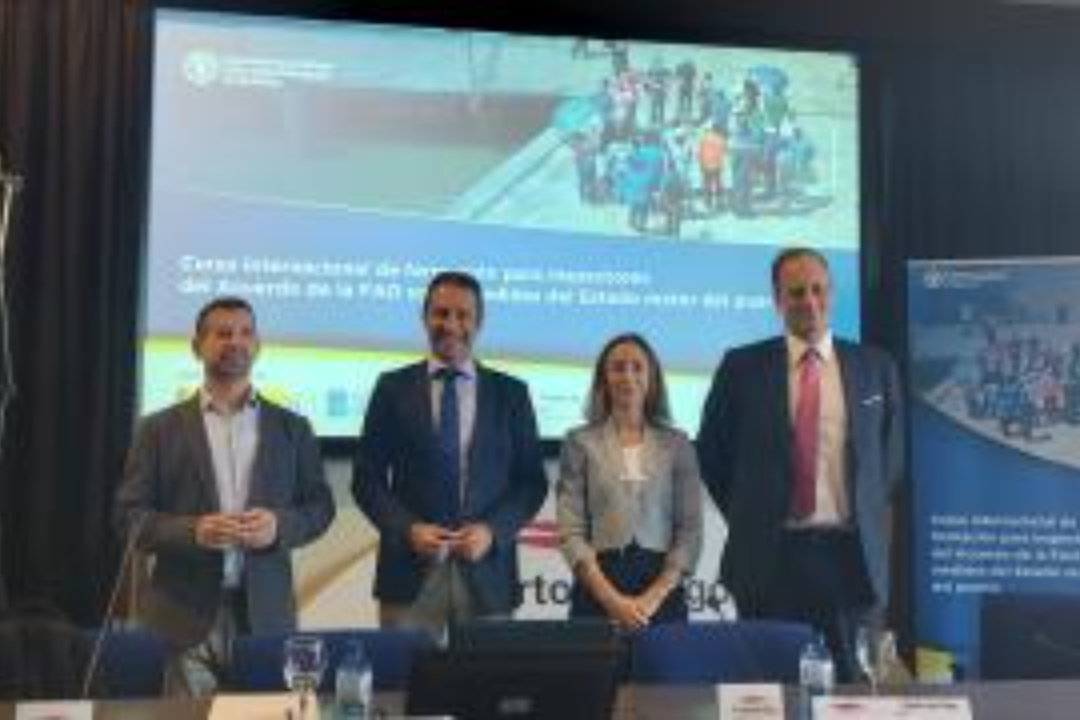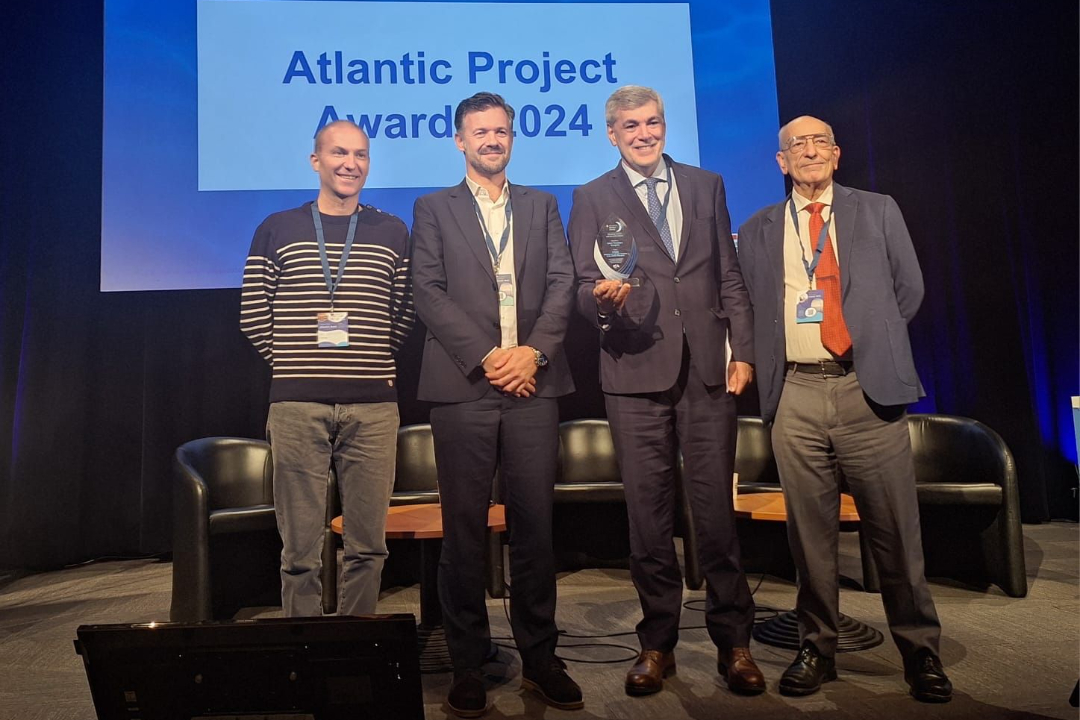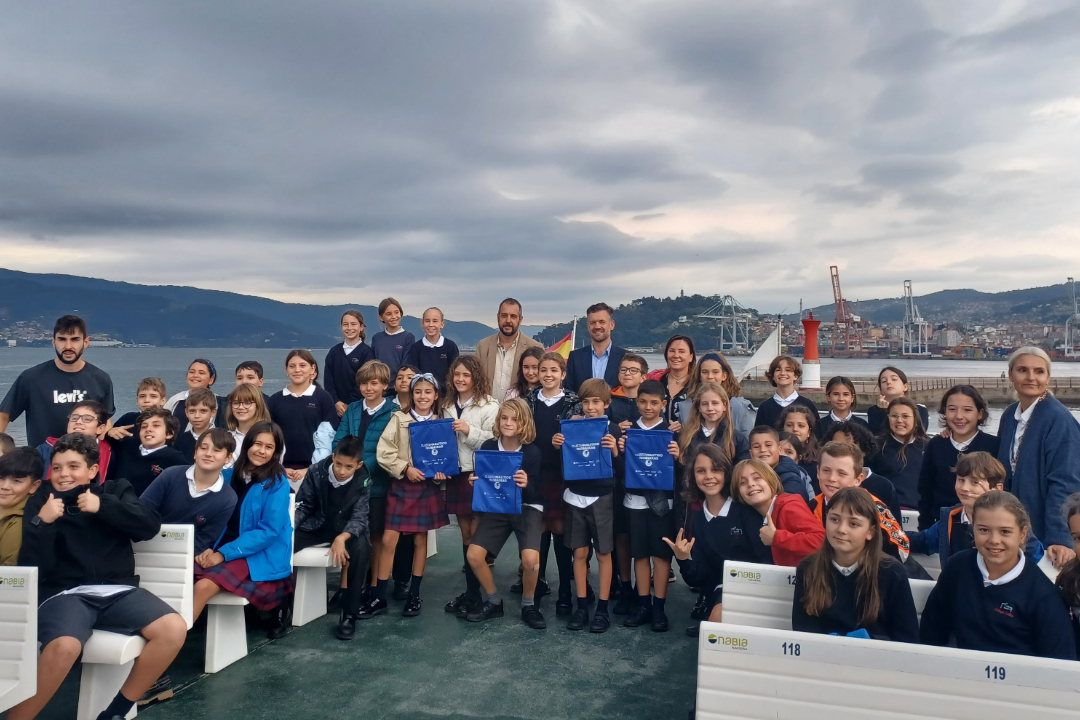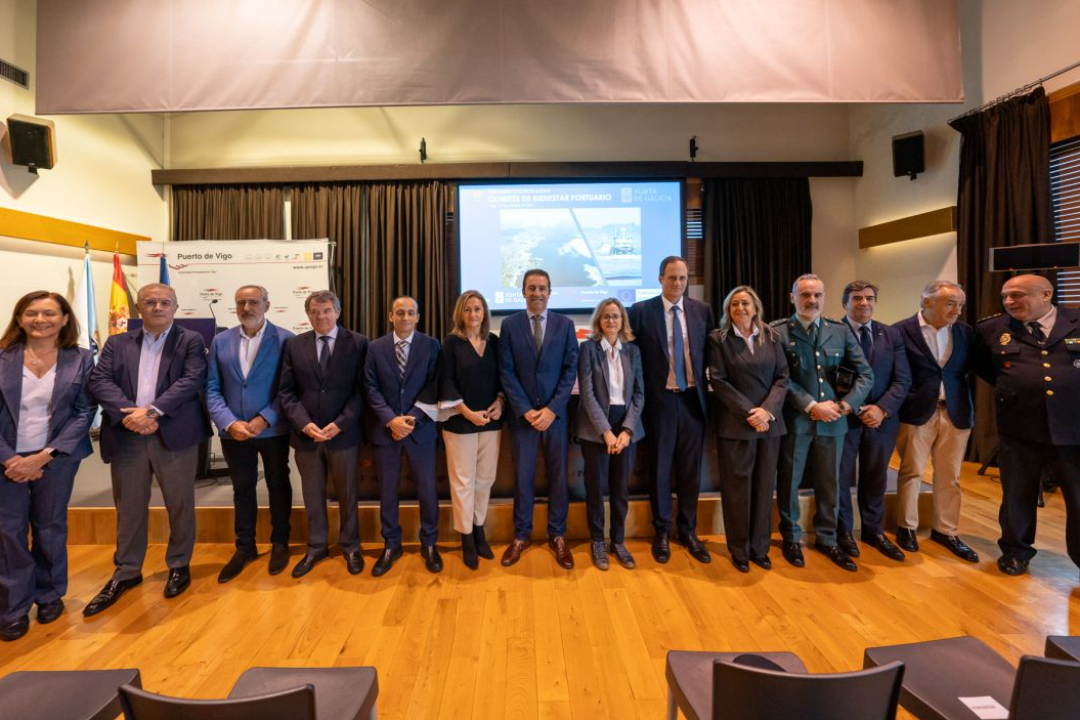THE PORT OF VIGO HOSTS THE 3RD FISHING INSPECTOR TRAINING COURSE LED BY FAO
Sep 11, 2023, 12:00:00 PM

Illegal,
unreported, and unregulated (IUU) fishing poses the primary threat to ocean
biodiversity. This activity encompasses a wide range of fishing practices, both
in international waters and national territories, affecting all stages of the
fishing value chain, from catch to consumer, according to the FAO.
The AMERP is
the first binding agreement specifically focused on IUU fishing, aimed at
preventing vessels engaged in this activity from landing in fishing ports.
In order to
strengthen the capabilities of fisheries inspection bodies to enforce this
agreement, the FAO has established two global training centers, one in the Port
of Busan, South Korea, and the other in the Port of Vigo, Spain.
In this
context, over the course of three weeks, the Port of Vigo will host a total of
16 inspectors from Costa Rica, Cuba, Ecuador, Peru, Honduras, Mexico, Uruguay,
and Panama. They will learn from international experts as well as teams from
the Xunta de Galicia and the General Secretariat of Fisheries about tools and
practices that they can apply in their respective countries in this endeavor.
This course
marks the third activity of this training center, which has seen the
participation of 48 fisheries inspectors from African and Latin American
countries since 2019. It is expected that the training center located in the
Sessions Building of the Port of Vigo will continue to work actively in the
coming years with the FAO, resuming the activities that were slowed down due to
the previous pandemic situation.
The course
was inaugurated this morning by the President of the Port Authority of Vigo,
Carlos Botana, the Regional Minister of the Sea, Alfonso Villares, the FAO
Fisheries Officer responsible for training, Alicia Mosteiro, and the Head of
Inspection at the General Secretariat of Fisheries, David Poderoso.
During his
speech, Carlos Botana, the head of the port authority, emphasized the
importance of the Fishing Port of Vigo as a global reference. He expressed
gratitude to the FAO and their willingness "to share all our experience
and learn from theirs," as "we believe in cooperation, and that it
should be at a global and permanent level." "Only by working together
at all levels of control and inspection, from the origin to the destination of
products, will we be able to contribute to a sustainable ocean and, therefore,
a viable fishing activity that provides a livelihood for those of us who live
in coastal-marine areas."
On the other
hand, the Minister of the Sea, Alfonso Villares, praised the exemplary work
done by sea professionals and Galician ports and considered it completely
unfair to arbitrarily question the good reputation they have earned after
decades of hard work. As he highlighted, the Galician fleet is aware that
illegal actions endanger the future of this activity, so it always operates
sustainably, responsibly, and respectfully towards marine resources.
The Port of
Vigo: a reference in FAO initiatives for port and fisheries sustainability
The positive
results of the implementation of the Blue Growth plan of the Port of Vigo as a
tool for sustainable development in activities have become an international
benchmark for FAO and other international entities.
Thus, the
Blue Ports Initiative promoted by FAO with the aim of strengthening the role of
fishing ports in the social, economic, and environmental development of their
direct surroundings takes the projects and actions developed by the Port of
Vigo as a best practice.
In this
regard, with the support of Puertos del Estado, the Xunta de Galicia, and the
General Secretariat of Fisheries, the Port of Vigo has contributed financially
and has actively participated in various training and tool development
activities. It has been able to share its vision and experience with port and
fisheries authorities from more than 20 countries in Africa, Asia, and Latin
America.
This active
participation is a manifestation of the commitment of the institution presided
over by Carlos Botana to the sustainable development of coastal-marine
territories and, specifically, to the importance of cooperating with other
global ports and fisheries sectors to implement best practices in traceability,
innovation, professionalism, just transition, and preservation and restoration
of biodiversity.
Aware of the
significance of this initiative, active efforts are being made to promote the
creation of a specific office for coordinating this initiative in Vigo


